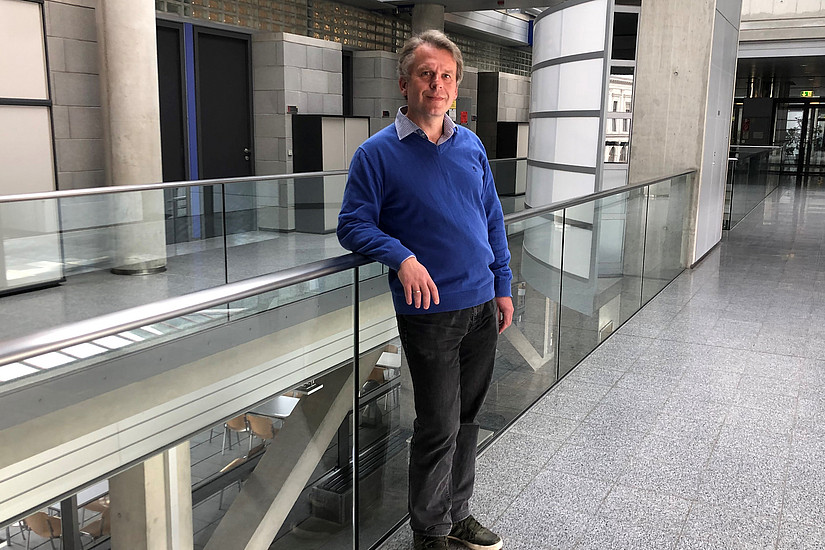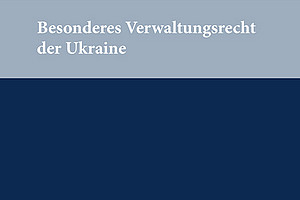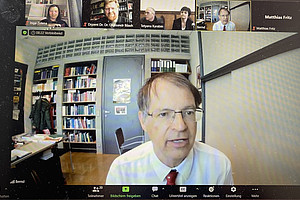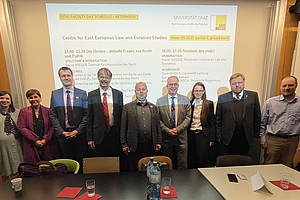REWI: Prof. Antonov, we’re happy to have you here at REWI Graz as our Land Steiermark Fellow! What opportunities does this fellowship give you?
The fellowship would enable me to facilitate outreach to and exchange with leading Austrian scholars at the University Graz and at other Austrian academic institutions. This can help maintain the existing and establish new contacts between Graz and the Russian research networks, in which I am involved. One of my key standing interests lies with comparative study of the legal thinking in Austria and Russia, its cultural background in the history of multinational empires (the Russian and the Austro-Hungarian) in the first two decades of the 20th century, and also in the development of the legal theory in the Soviet Russia and in the German-speaking community in the following years of the 20th century, including the experience of the totalitarian regimes. The University of Graz as one of the leading academic hubs in Austria will be an excellent place for extending this research.
REWI: Your research currently focuses on Russian Exceptionalism in Human Rights. What are the most interesting findings of your research so far? What questions will you look into while in Graz?
I am convinced that actual political tensions between Russia and the EU, including those concerning human rights, are partly explicable as results of the difference in how we understand rights and other key legal concepts. For a number of reasons, connected with language, history, social and political structure, for Russians it is hard to accept that there can be rights beyond and even contrary to commands of the state. During my research in Graz I intend to continue with my research and look into how different legal methods (legal positivism, natural law, etc.) can be instrumentalized in ideologies, and how Begriffsgeschichte can explain this instrumentalization.
REWI: We’re really looking forward to your upcoming research results! Maybe we can follow up with some details on your time before you came to Graz, like previous positions, memorable experience in your career?
I studied law at the Saint Petersburg State University. After graduation in 2000, I started working at Staatsanwaltschaft (the Russian Prokuratura) and began writing my PhD. As my PhD topic was connected with a Russian sociolegal scholar (Georges Gurvitch) emigrated to France after 1917, I sought opportunity for continuing the research in France. In 2004, I went for master studies to the University Paris-V. In 2006, I finished my master studies in social sciences and returned to Russia, where defended my PhD in 2007 at the Saint Petersburg State University. Since then, I am teaching legal theory, legal methodology, history of political and legal ideas – first at my alma mater, and from 2010 on, at the Higher School of Economics.
REWI: Last but not least, we are very interested in what else you are looking forward to in Graz (apart from your research)!
It is not my first time in Graz where I have already been for a couple of scientific conferences. When visiting Uni Graz before, I appreciated that this is an excellent research center consisting of the people specialized in legal and extra-legal (political, philosophical, historical, religious) issues tied to the field of human rights. In this regard, I will be able to draw on my previous research that involved case studies of Russian law in such areas as religious freedoms, enforcement of foreign decisions, and protection of human rights. Naturally, the city of Graz itself is worth of interest – there is plenty of beautiful places around the city for hiking and a lot of cultural attractions inside Graz.




